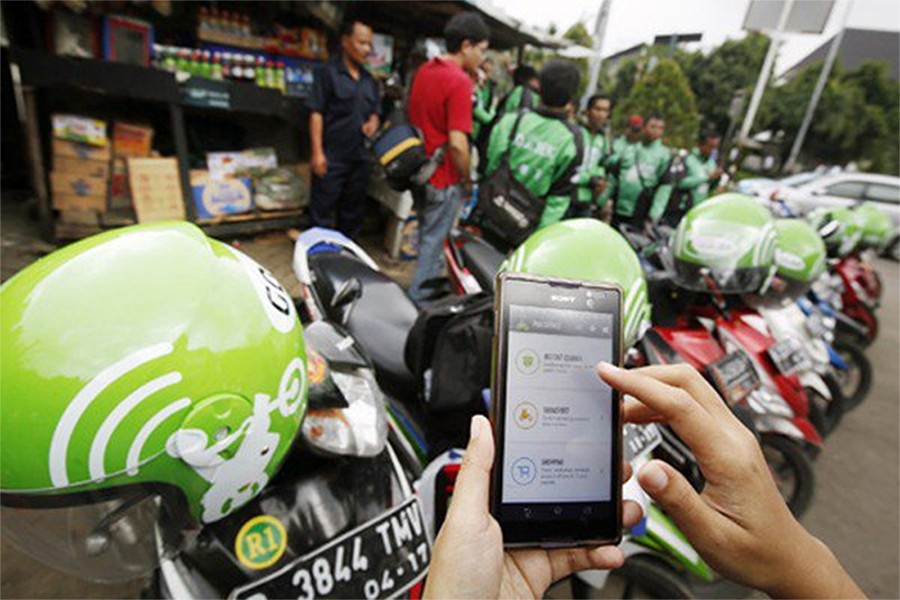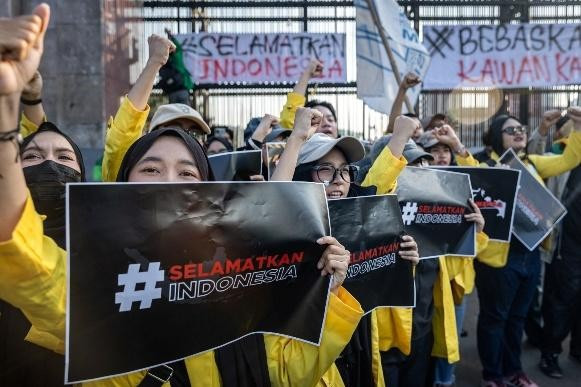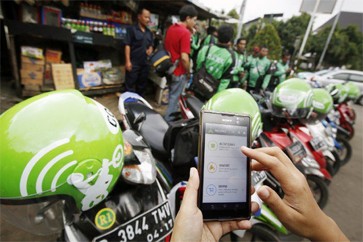Popular Reads
Top Results
Can't find what you're looking for?
View all search resultsPopular Reads
Top Results
Can't find what you're looking for?
View all search resultsHow ride-hailing regulations reflect ambivalent politics of ‘scooter class’
According to RISED, 75 percent of users of ride-hailing applications earn below Rp 3.5 million a month -- which is less than most drivers earn. This further accentuates the developer’s dilemma: in trying to cater to driver-partners, it is the service’s low-income users that could be harmed the most.
Change text size
Gift Premium Articles
to Anyone
T
he four words sesuai aplikasi aja bang (“according to the application bro”) are all a hungry or commuting urbanite needs today to have food delivered or navigate the clogged streets of the country.
Convenience being the order of the day, the on-demand world of Go-Jek has even created a template that saves our tired fingers the hassle of typing out the magic four words.
Best of all, the services offered by app-based ojek (motorcycle taxi) drivers are a bargain. When combined with the seemingly infinite supply of promo codes, short journeys cost as little as Rp 2,000 (US$0.14) and food delivery is often free.
An app-based ojek driver is never more than a few minutes away. Green-helmet services have become a ubiquitous phenomenon across the country, with estimates claiming over 2.7 million driver-partners under the duopoly of Grab and Go-Jek.
Millions in the country have become dependent on these services. The wheels of change, however, are in motion and the days of low prices are coming to an end.
Marking the latest intervention from the government in regulating the ride-hailing industry, a transportation ministerial decree announced on July 4 prohibits app-based ride-hailing companies from offering “excessive” promotional discounts.
The decree followed a transportation ministerial regulation effected in May and expanded to 41 cities from July 1 -- the first of its kind to target minimum fares for ride-hailing services. The regulation also recognizes app-based ojek as a form of public transportation.


















